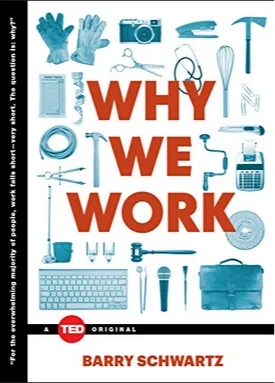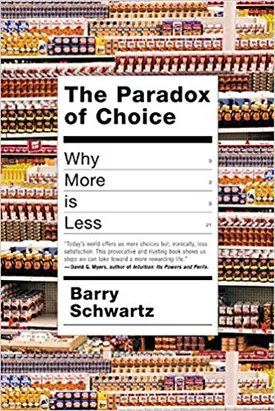Barry Schwartz
Barry Schwartz is an American psychologist and author who is known for his books that challenge social and economic conventions. Born in Philadelphia in 1946, Schwartz graduated from Harvard University with a degree in psychology and then obtained his Ph.D. at the University of Pennsylvania. He has been a professor at Swarthmore College since 1972 where he teaches courses in psychology, economics, and management.
Schwartz is the author of several books that challenge the status quo of how society views success and achievement. His first book, The Costs of Living (1979), is a critical review of the effects of income inequality on meaningful labor and rewards. His second book, The Battle for Human Nature (1986), tackled what he saw as the public’s increasing misinterpretation of Locke's state of nature—Schwartz argued that the public was not taking into consideration that human nature was not just a reflection of our economic choices, but rather of our social selves and our emotions.
In 2004 Schwartz wrote The Paradox of Choice: Why More Is Less. This book discusses the act of decision-making and the psychological effects of having too many choices. As a result of this book, Schwartz gained international recognition for his work. This book was also made into a TED talk which further helped to make Schwartz and his work known to a large audience.
Schwartz’s 2011 book, Practical Wisdom: The Right Way to Do the Right Thing, focused on the importance of understanding the purpose of our actions and their effects on the world around us. In 2013 he published the book Why We Work. This book examines how work can be used to fulfill personal needs, generate higher salaries, and affect an overall sense of satisfaction and quality of life. Schwartz’s writing style is accessible, thought-provoking and often humorous which helps him to effectively address these topics.
Most recently, Schwartz published an essay entitled, The Ethics of What We Eat (2016). This essay discusses food ethics and its implications for better health and understanding of the environment. He is currently working on a book called, the Good of Work: How Our Work Makes Us Human which focuses on how meaning in life can be found in our work.
Most of Schwartz’s books have been praised by presses such as Harvard, Yale, and Princeton. His work has been featured in many popular outlets such as the New York Times, New Yorker, Time, and The Atlantic. He has won numerous awards for his work, including the PT-YLE World Without Walls award in 2013.
Today, Schwartz continues to be advocate for understanding the importance of meaningfulness and purpose in our decision-making and life choices. He often speaks publicly about meaningfulness, the need for simplicity in decision-making, and the value of understanding and planning for our future. He is emphatic about the importance of understanding how our lives, our choices, and our emotions are intertwined and connected to one another. He believes that when we understand this connection, we can truly make the best choices for ourselves and for society.


